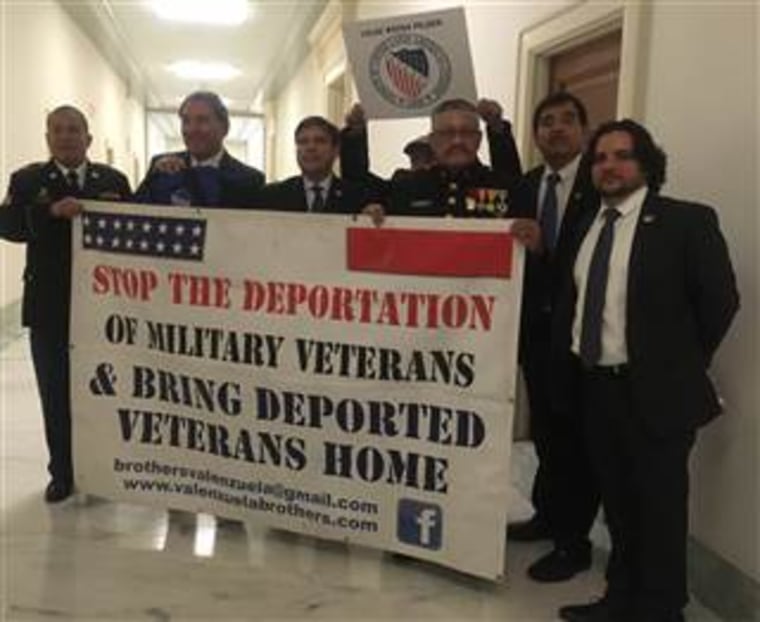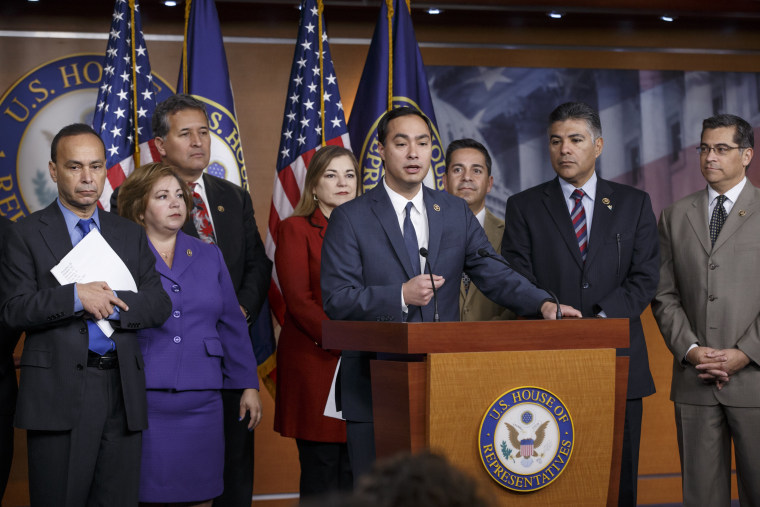The weekend after Memorial Day, Rep. Joaquín Castro is leading a delegation of Democrats across the border into Mexico to meet with deported U.S. veterans.
The visit is intended to focus attention on the estimated more than 230 military veterans deported from the U.S. and on the need for a more rigorous process to ensure legal residents recruited with promises of citizenship are naturalized.
The lawmakers, all members of the Congressional Hispanic Caucus, plan to meet the veterans at Deported Veterans Support House, the “Bunker,” in Tijuana, Mexico.
The shelter was started by Hector Barajas, a U.S. Army veteran who served three years in prison, a punishment granted in a plea deal for shooting at a car, and was deported. California Gov. Jerry Brown has since pardoned him for the crime and Barajas now has hopes of returning to the U.S.
RELATED: Having Served in U.S. Military, Immigrants Fight Deportation Orders
“Many of us believe that they should be allowed to become citizens,” Castro told NBC Latino in a telephone interview Friday.
“Many, if not most, were legal permanent residents, who were eligible to become citizens and perhaps never applied - they stood up for their country and put their lives on the line,” he said.

Castro acknowledged that getting laws changed to stop the deportation of veterans who are legal residents would be tougher under a Trump administration. But Castro said he thinks “there is strong bipartisan support among Americans to do right by these veterans.”
“We would ask the administration to consider the service these veterans have rendered for the country and the fact they did put their lives on the line,” he said.
Legal permanent residents can be deported if they commit certain crimes, including ones that occurred many years in their past.
Castro said the trip came about in part from discussions with members of the Edgewood District Veterans Inc., a group of Vietnam Veterans. The San Antonio group each Memorial Day honors alumni of Edgewood High School who served in Vietnam and alumni who died in the war.
Mario Longoria, president of the Edgewood veterans group, said the group has a member facing deportation, but also had been contacted by another veterans' group about the issue. The group raised it with Castro while meeting with him on another issue.
RELATED: Group Wants Veterans' Deportations Addressed in Presidential Debate
Longoria acknowledged some of the veterans knew they had to get their naturalization process done to become citizens. But he said some mistakenly believed, or were told, that their service automatically makes them citizens.
Noncitizen veterans have to initiate and go through the usual citizenship process, but their path to citizenship is expedited.
According to Castro’s office, 10,644 non-citizens were serving in the U.S. military as of last January and another 11,524 non-citizens were in the Reserves.
Most legal permanent residents in the military are from the Philippines, Mexico, Jamaica, South Korea and the Dominican Republic, Castro's office said.
Whatever the reason for failing to become citizens, Longoria said he opposes deportation of any veterans, although he supports any who have committed crimes serving their sentences.
“They should not ever deport veterans,” he said.

